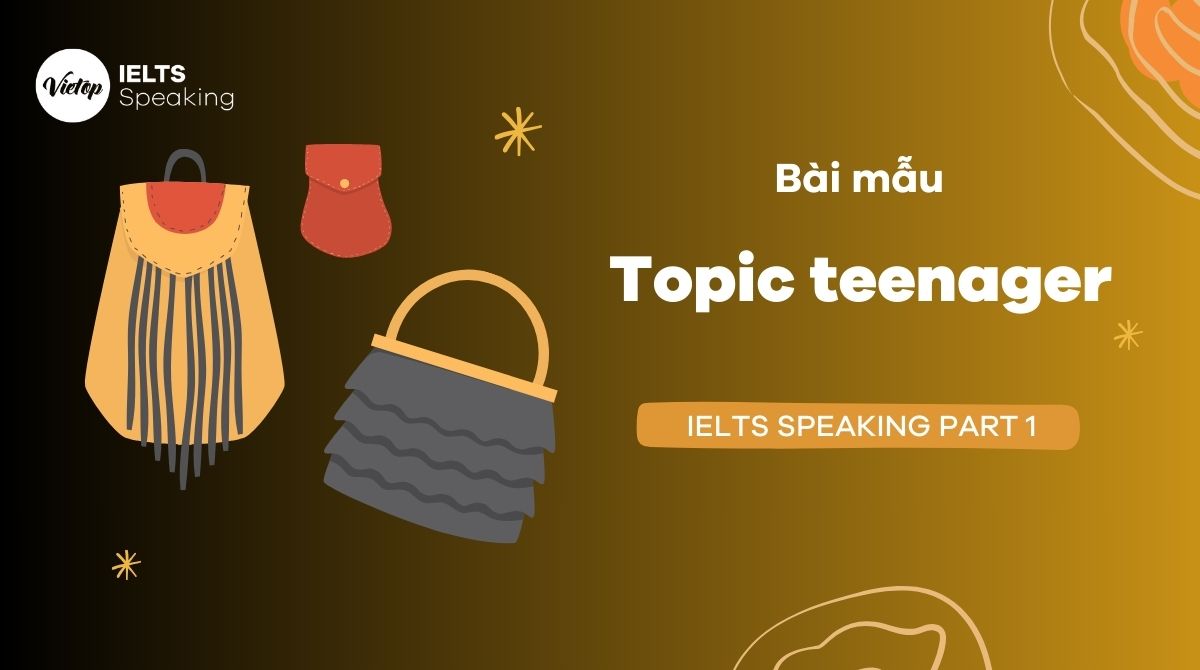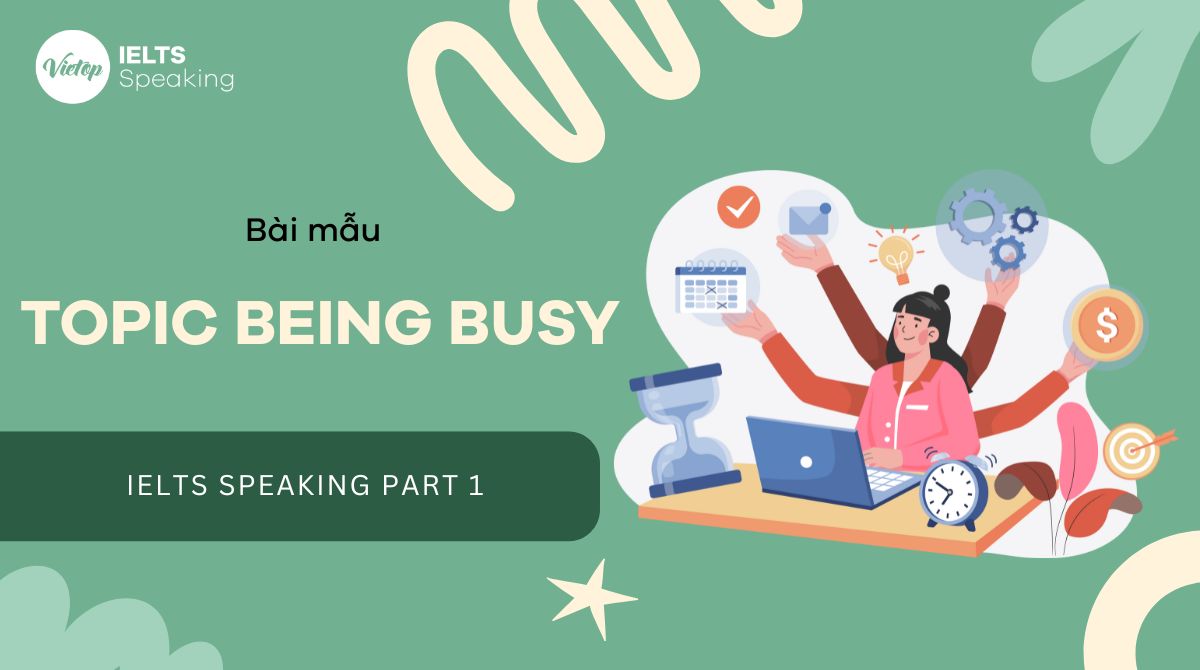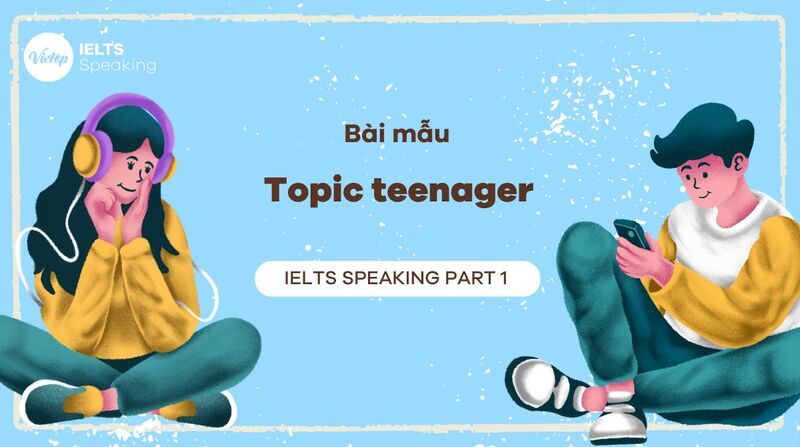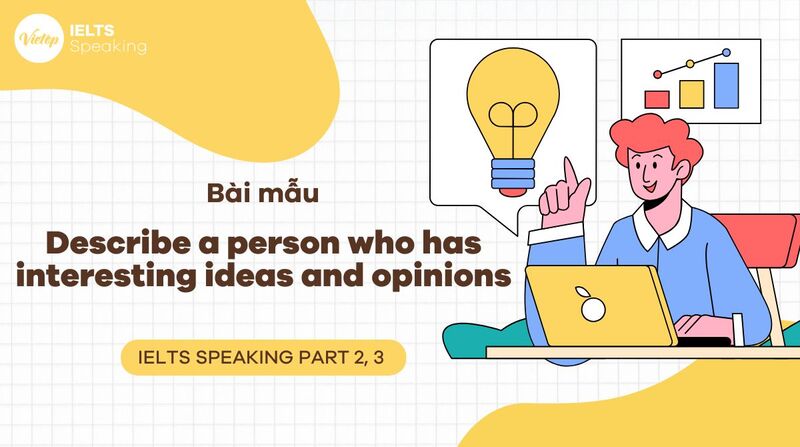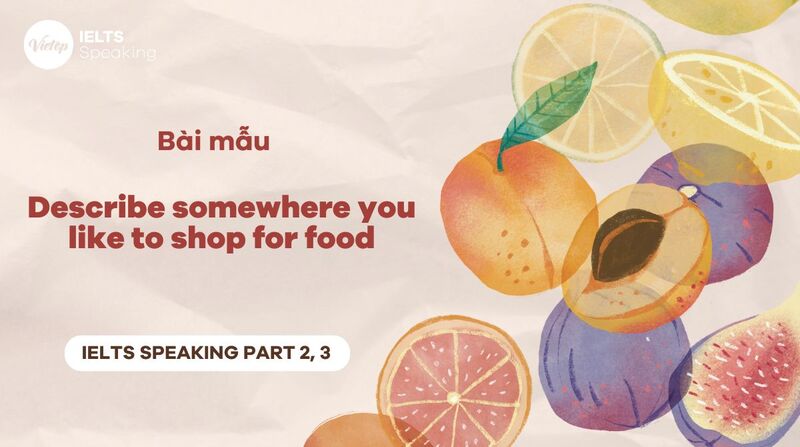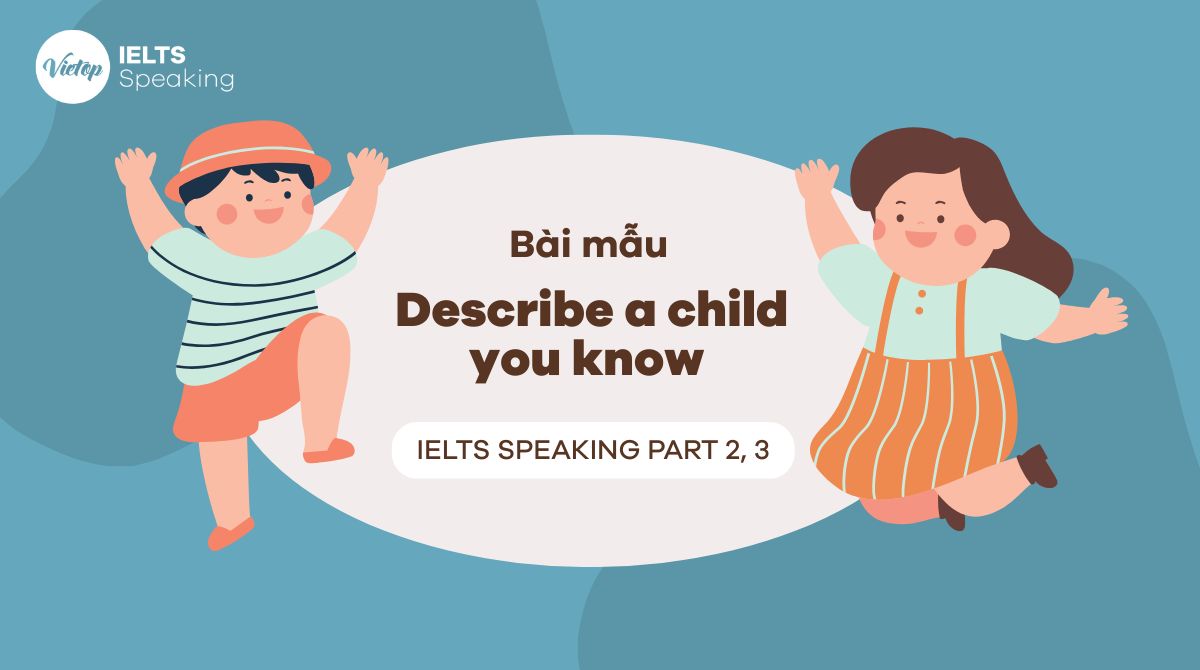Tiếp nối đề IELTS Speaking Part 2 – miêu tả một buổi trò chuyện thú vị thì dưới đây là bài viết của Vietop English về bài mẫu Topic Interesting Conversation – IELTS Speaking Part 3. Mời các bạn cùng tham khảo qua nhé!
Bài mẫu topic Interesting Conversation – IELTS Speaking part 3
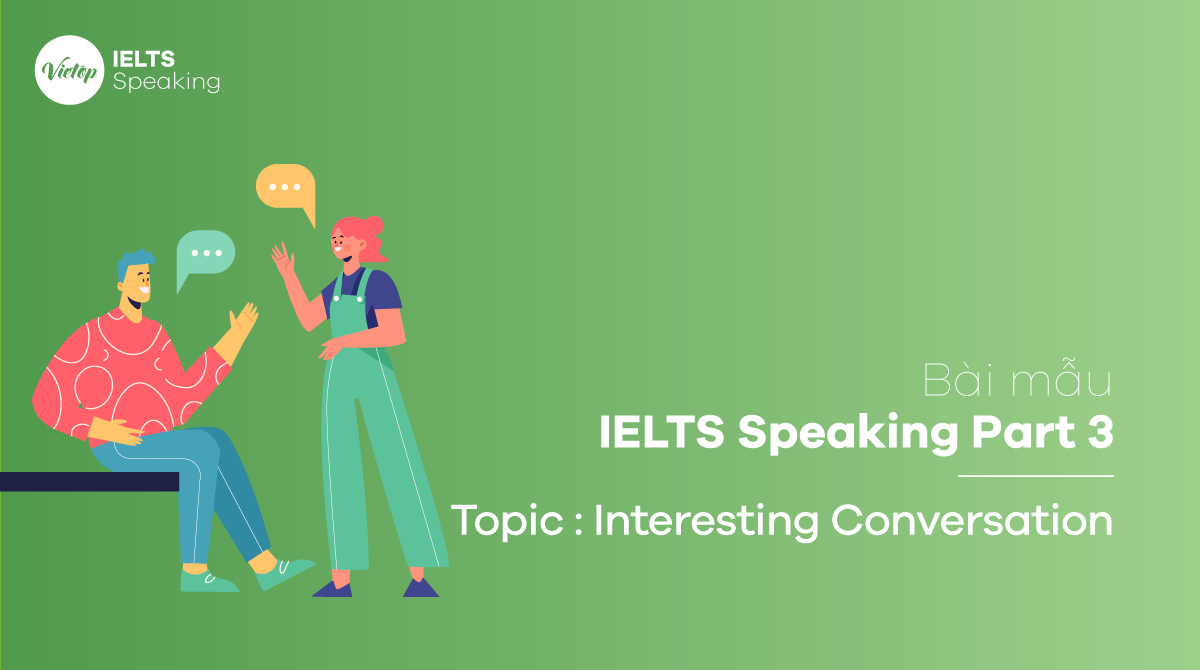
Mời mọi người Audio Topic Interesting Conversation tại đây nhé!
1. Are there any differences between men’s and women’s favourite topics?
There isn’t, in my opinion, a difference between study and work-related topics. However, I notice that men frequently discuss sports when talking about entertainment because they are by nature competitive. In addition, most women tend to be interested in fashion and cosmetics because they usually want to beautify themselves. That is why, in my opinion, publishers create separate magazines for male and female readers.
- Study and work-related topics (n): các chủ đề liên quan học hành và làm việc
- Frequently (adv): thường
- Nature competitive (n): bản năng/tính chất cạnh tranh
- To tend to (v): có xu hướng
- Cosmetics (n): mỹ phẩm
- To beautify (v): tô điểm, làm đẹp
- Separate (adj): riêng biệt
Xem thêm: Khóa học IELTS Cấp tốc – Cam kết tăng ít nhất 0.5 – 1.0 band score SAU 1 THÁNG HỌC
2. What is the difference between talking over the phone and having a face-to-face conversation?
Since words and intonation are the only means of communication, I would say that communicating through an electronic device such as a mobile phone may be difficult to convey a full range of emotions.
Face-to-face communication, on the other hand, allows people to use eye contact, facial expressions, and body gestures to ensure that their verbal and nonverbal messages are correctly perceived. As a result, misunderstandings are less likely to occur when we meet and talk in person.
- Intonation (n): âm điệu
- Means of communication (n): phương tiện giao tiếp
- To convey (v): truyền tải
- A full range of emotions (n): Đầy đủ các cung bậc cảm xúc
- Eye contact, facial expressions, and body gestures (n): Giao tiếp bằng mắt, nét mặt và cử chỉ cơ thể
- Verbal (adj): bằng lời nói
- nonverbal (adj): phi ngôn ngữ
- To perceive (v): nhận thức, phân biệt, hiểu rõ
- Misunderstanding (n): sự hiểu lầm
- To occur (v): xảy ra
3. Is body language important?
Because nonverbal communication is a vital component of daily communication and a universal language, I think it is equally important to pay attention to it. Sometimes, body language would convey messages more successfully during face-to-face interactions than verbally. For instance, a person’s facial expression, particularly their eye movements, can indicate whether they are trustworthy.
- Nonverbal communication (n): giao tiếp phi ngôn ngữ
- Vital (adj): quan trọng (= important)
- A universal language (n): một ngôn ngữ toàn cầu
- Face-to-face interactions (n): tương tác mặt đối mặt, tương tác trực tiếp
- Eye movements (n): chuyển động của mắt
- To indicate (v): biểu thị, chỉ ra
- Trustworthy (adj): có thể tin tưởng
4. Why do some people get nervous when they give presentations?
I believe that the main reason we become anxious before presentations is our fear of the unknown, and there are two possible causes of such fear. The first is the audience, which consists of a variety of strangers – we are unsure of their response to our speech or presentation.
The second fear is the topic itself, even if you have memorized or practiced your presentation numerous times before the day of reckoning, you will understandably feel nervous if you think you don’t understand the subject sufficiently.
- Anxious (adj): lo lắng (= nervous)
- Fear (n): sự sợ hãi (= scare)
- Audience (n): khán giả
- To consist of (v): bao gồm
- To be unsure (v): không chắc chắn
- To be memorized (v): ghi nhớ
- Numerous (adj): nhiều (= many)
- The day of reckoning: “ngày phán xét”, ngày ấn định điều gì quan trọng
- Sufficiently (adv): đủ (= enough)
Xem ngay:
- Topic sport – Bài mẫu IELTS Speaking part 1, 2, 3
- Bài mẫu Topic Value – IELTS Speaking Part 3
- Bài mẫu Topic Intelligence – IELTS Speaking Part 3
5. Do you think visual aids are important in giving presentations?
My answer is yes. In order to deliver a memorable presentation, visual aids must be combined with excellent public speaking skills. For example, colourful images, video clips, and graphs will be able to help us capture the audience’s attention while also illustrating key points, so presentations would be extremely boring and unconvincing without visual aids.
- Memorable (adj): đáng ghi nhớ
- Visual aids (n): phương tiện minh họa trực quan
- To be combined with (v): kết hợp với
- To capture (v): chiếm, bắt lấy (sự chú ý)
- Illustrating key point: minh họa các ý chính
- Unconvincing (adj): không thuyết phục
Trên đây là bài mẫu topic Interesting Conversation – IELTS Speaking Part 3, hy vọng bài viết sẽ là nguồn tham khảo tốt cho các bạn trong việc học và chuẩn bị cho kỳ thi IELTS. Chúc các bạn học tốt!

